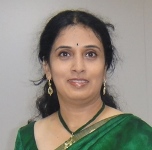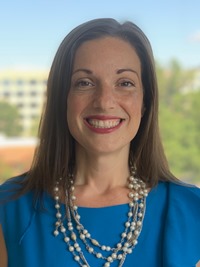Healthcare AI and Project Management for
Pharmaceuticals and Medical Devices
Future of Healthcare and Artificial Intelligence (AI):
Practical Insights and Diverse Perspectives on AI in
Healthcare Project Management
SERIES ARTICLE
By Dr. Deepa Bhide, MBBS, DCH, PMP
Hyderabad, India
and
Tiffany Brewer
Tennessee, USA
INTRODUCTION
Healthcare technologies [a broad term that includes pharmaceuticals (drugs) and medical devices] are not isolated entities but a fabric of close interactions and influences on each other. As a group, these interrelated industries are the health economy. The complex relationship between these three industries has the potential to shape the landscape of modern medicine, impacting everything from research and development to public health and, most importantly, patient care. This interwoven relationship constantly evolves with continued innovations in the three entities, presenting challenges and opportunities.
While Artificial Intelligence isn’t entirely new to the medical device industry, its role has significantly evolved and grown in recent years. With Generative AI making waves across the health economy, it’s time for the trio to embrace it more meaningfully. AI has been active in the pharmaceutical and medical device industries across various stages of drug development and production in the entire value chain, clinical trial optimization, enhanced design and monitoring of medical devices, manufacturing and supply chain, regulatory compliance, and marketing and sales.
Let’s gain insight into experiences and perspectives on AI from a few experts in the pharmaceutical and medical devices industries.
__________________
Healthcare Technologies – Pharmaceuticals and Medical Devices
Ernie Szeto, MSc, PMP, DASSM, Senior Business Process and Marketing Operations Manager, Merit Medical Systems Inc, Hong Kong
Michael O’Connor, PhD, MSPM, MSTM, MBA, PE, PfMP, PgMP, PMP, Senior Research Program Director, Program Management, Medtronic, USA
Tarek Elkady, Msc HI, CPHIMS, Pharmacy Informatics Consultant, Egypt.
A few experts in medical devices and pharmaceuticals interviewed wished to contribute anonymously.
The Interviews
Q 1: Do you use AI in any form in your current work area? If yes, how do you currently utilize AI in your day-to-day work?
Artificial Intelligence (AI) and Machine Learning (ML) have been used in pharmaceutical and medical devices for many years. These technologies have the potential to improve patient outcomes and reduce healthcare costs.
AI and machine learning (ML) have been used in pharmaceutical and medical devices for many years. These technologies have the potential to improve patient outcomes and reduce healthcare costs.
“As a leading healthcare service provider, leveraging AI across customer relationship management, business intelligence, backend support, and supply chain management is a trend,” Ernie mentioned.
“A ton of data has been collected over the years with medical devices (micro-pacemakers, cranial and spinal robotics, etc.). Because of its unique ability to create entirely new data, Generative AI has opened up opportunities for creating innovative, personalized, and smarter systems,” Michael added.
“We started to use AI in outpatient pharmacy to predict workload based on historical data. Using the Linear Regression model, we can predict future workload patterns. This allowed for better resource utilization and improved patient waiting time,” Tarek was keen to respond.
“AI technologies such as natural language processing, computer vision, and deep learning have been used for various applications, including drug discovery, clinical decision support, predicting drug efficacy, identifying potential side effects, and optimizing dosage regimens and remote monitoring,’ Michael.
Summary: AI, in its nascent form, has been used in many technologies, including medical devices, wearables, and patient-facing applications. The pharmaceutical industry, including pharmacies, has used it in its supply chain processes and resource optimization. Generative AI has opened new opportunities for democratizing the use of AI and creating innovative products and services.
Q 2: What’s the landscape of AI in the pharmaceutical and medical device industries?
More…
To read entire article, click here
Editor’s note: This series is by Dr. Deepa Bhide, a practicing pediatrician with additional experience in information technology and project management. Her 2023 series of articles introduced readers to a range of important issues related to programs, projects and PM in healthcare. In this new series, Dr. Bhide is interviewing experienced healthcare, IT and project professionals around the world to reflect on the impact of artificial intelligence on global healthcare. This month’s article is co-authored by Tiffany Brewer, a technology specialist based in the United States. Learn more about Dr. Bhide and Ms. Brewer in their author profiles at the end of this article. To read previous works by Dr. Bhide, visit https://pmworldlibrary.net/authors/dr-deepa-bhide/
How to cite this paper: Bhide, D. and Brewer, T. (2024). Healthcare Technologies: Healthcare AI and Project Management for Pharmaceuticals and Medical Devices: Practical Insights and Diverse Perspectives on AI in Healthcare Project Management, series article, PM World Journal, Vol. XIII, Issue IV, April Available online at https://pmworldlibrary.net/wp-content/uploads/2024/04/pmwj140-Apr2024-Bhide-Brewer-healthcare-technologies-series-article.pdf
About the Authors

Dr. Deepa Bhide
Hyderabad, India
![]()
Dr. Deepa Bhide, MBBS, DCH, PMP, has over 20 years of professional experience where she has blended medical practice and research with IT and Project Management. She juggles consulting, training, and operations and is proficient in clinical medicine, project management, and healthcare information technology. Starting her career as a medical practitioner, she has worked with varied organizations before her current stint as director and clinical expert for Inventurus Knowledge Solutions.
Deepa’s growing interest and work in these areas, born from her day-to-day patient interactions, helped her view Project Management as a backbone of progressive healthcare. Her paper on “Patient Care – A Project Management Perspective” has received global recognition and acclaim. With a physician background as a solid foundation to leverage IT/PM skills and knowledge, Deepa has blended her broad-based experience and learnings to present a unified, holistic, and wholesome view of Project Management and Healthcare, a cross-domain confluence. Through various webinars, events, talks, and writings across platforms, Deepa has been an evangelist in championing global project management during the COVID-19 pandemic.
A Gold medalist from Osmania University for standing First in the MBBS course, she pursued her DCH in Pediatrics and Child health. Deepa has served various roles in local and global Project Management Institute (PMI) regions. She remains actively engaged with PMI and has been a participant and speaker for various national and global meetings and online events.
Deepa lives in Hyderabad, India, and loves traveling, singing, and experimenting with global cuisine. She can be contacted at deepa.bhide@gmail.com.

Tiffany Brewer
Tennessee, USA
![]()
Tiffany Brewer has 20 years of professional experience across supply chain, operational excellence, and technology, with a particular focus on the pharmaceutical and medical device industries. Throughout her career in supply chain, she has honed her skills in business transformation, integrated business planning, and corporate strategy.
She is passionate about applying technology, data, and processes to solve business problems and has a background implementing tools and systems in supply chain environments. She’s worked both on the customer and service provider side and has a love for supporting customers through change and understanding their needs.
As Director, Life Sciences Industry Strategy, she counsels global companies on industry-leading best practices and technology advancements. She also collaborates with Blue Yonder’s product development and innovation teams to align on addressing the challenges these industries face today.
Tiffany has degrees in Operations Management and Supply Chain from The Ohio State University (Go Bucks!) and an MBA from Indiana University. She lives in Memphis, Tennessee with her family.









